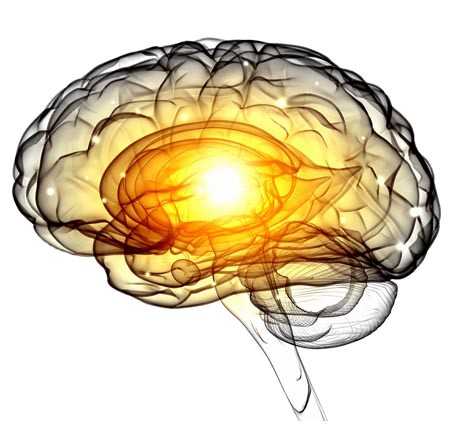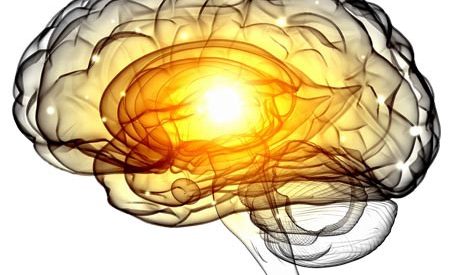 This is your brain? Image credit to Pexels
This is your brain? Image credit to Pexels
Are you harder at times on yourself more than anyone else? Me too. It?s normally the part of you that deals with the stress responses at work and in life. Stress is killing us.
My friend recently wrote, ?Stop being so hard on yourself.? She was right. She?s also a good friend for calling me out on what she sees; unfair and overly-harsh self-judgment, maybe even feeling like a loser of if you?ll ever make it.
I?m no shrink or anything, but I?m pretty good at dealing with my brain attacks and head trash. Yeah, I tend to be hard on myself. This means I?ve had a lot of years to practice being kinder and gentler with myself, even though I?m still a capital ?D? driver. Progress, I think.
It?s the stress that gets to me the most. Whenever I feel like I need control, approval, or security, I react, like the animal I am. I get disappointed, upset at myself, and often attack within, ?You $@#%$. How could you do that? Geez. That mistake?s going to cost you buckets. #@$#. You?re such a loser.?
Ouch.
My expectations of myself always have been somewhat unrealistic. I didn?t figure that out until I had fallen on my face trying something new at least 10,000 times. I used to get ridiculously angry with myself, and in many cases, let self-doubt take me out of the game, set, match, business deal, sale, and more. Anger became a habit. Losing was never okay. It was all about getting my way. It?s taken decades to make significant breakthroughs. Maybe you?re more kind to yourself.
It?s a good thing we have the potential to learn from our mistakes, given the right mindset and the willingness to stay the course. Staying the course is more comfortable when the work you do aligns with how you perceive yourself and your purpose here on earth. The bigger your why for doing what you do, the more inclined you are to stick it out when you hit tough times. If you know your superpower, it?s easier to stay excited about what you do, and over time you hopefully learn to focus on your gifts and not beat the crap out of yourself. My superpower is empowering people.
People with secret powers can have bad days, too.
Learning not to be hard on yourself is a process even if you?re a superhero. We all have our Kryptonite. Why is it the most famously-creative and talented performers, artists, athletes, and leaders seem so afflicted by a constant, inner torment? I don?t know. It?s as if an inner genius is offset by a potential, dark force that can take us out of the game at any time.
To a mere mortal like me, it seems the more famous you become, or the higher you rise to the top of any business or game, your tendency to self destruct might be higher. Or is it super-high achievers are this way by nature? Again, we?d need an expert to weigh in on this. To me, it?s like we?re all wondering how come we?re not good enough when we?re all good at what we do, even great. I know this is true for me.
It?s not fun to lose any part of your mind or body. I?ve lost my temper. I?ve lost my patience. Patience was not one of my virtues as a younger man. I?ve lost my mental and physical health and found myself on a walker when I was only 43. Back surgery stinks. But you can bounce back from that, too.
Life and work happen at terminal velocity these days for all of us. The older you get, the faster the time-suck seems to pull you closer to the form of existence from which you emerged; stardust, right?
The good news is that we learn to be easier on ourselves, perhaps more compassionate, as we get older. The experience of life and work might soften many of us a bit, but you?ll see a fair number of ?angry, old? and young people running around.
5-Minute Exercise
When the going gets tough, maybe it?s time to lighten up and chill. Here?s a simple, five-minute exercise I?ve found very helpful whenever my brain attacks me. This exercise works, especially when you suffer any setback or feel emotional about anything that bothers you about yourself or others.
Practice without being competitive because this exercise is not a competition or race. There?s no one way to do any of this. Kick into these steps when the dark thoughts start talking to you. Everything I?m about to tell you is best practiced in a quiet spot, and not driving down the highway, even though you can become more mindful of your emotions and thoughts when you drive.
- Start breathing consciously. Smile. Look around. Take a break from the task at hand. Take a walk around if you can. Smile. Breathe in deeply, fill your belly with air as if there?s a big balloon within you, then exhale. There?s no need to be extreme. Just breathe deeply, slowly, maybe even close your eyes. Do this for one to three minutes as you begin to replace your thoughts with positive thinking.
- Cancel the negative thought on the spot. This means when a contrary, self-defeating idea creeps in, say to yourself, ?Hello Thought. I see/feel/hear you coming. I know your goal; take me off track a bit, maybe slow me down. Self-doubt beat me up. Not today. No way! Time to move on. I?m canceling you now, on the spot.? If this seems like it?s nuts, you could be right. Just try it.
- Replace the thought you canceled and dismissed with a positive one. Talk to yourself. Clearly, we?re all capable of this. So use the part of you that canceled the negative thinking to provide a new one like, ?You can do this. It?s okay to feel frustrated sometimes. You?re learning every minute and getting better. Keep plugging away. I love this work because REASON, and I?m grateful to have the opportunity to take this project, goal, business, task, on.
- Visualize the ideal outcome. See it, feel it, trust you can get where you want to go, even though it may not be easy at times.
- Practice being aware of your thoughts and feelings. Increasing awareness is what the art of mindfulness is all about. Try being the observer of yourself if that makes sense. Just practicing sensing, feeling, being, what?s going on within you, slow down, is one way to be here now.
Bouncing Back for Life
I hope you find this 5-minute exercise helpful. The truth is, the more I incorporate mindfulness, meditation, Qigong, archery, writing, conscious breathing, letting go of anything I can?t control, which is everything, and not being attached or need the approval of others, the freer I am.
I got to grow up in the magical state of New Hampshire. All the license plates read, Live free or die. Seeing those words every day growing up shaped my life to be a creative, outlying, misfit. The older I get, the more I get over myself.
What I mean is I don?t judge myself as harshly. I?m kinder to myself. This is what enables me to be kind to others, even if I don?t agree. I can disagree and meet you where you are. I do this by letting go and letting God. This is the most important lesson I learned when it comes to bouncing back from the darkest nights of the soul.
Consciousness, for me, is where true liberation begins. I know there is much I don?t know. If I?m supposed to know, I will learn. If not, what difference would it make now that I know how to be an observer. The observer part of each person is loving. It sees all. It?s as if she steps from within you, rises above and all around, and helps see what we could not see before. This is how I?ve learned to love and not be a jerk to those who loved me when I could not love myself.
Learn to be. Just be. Sound stupid? It?s not. We?re too busy doing. Just be kinder to yourself. Start there. Breathing slowly, consciously, as if your life depended on it, is another ?go-to? way I get out of my own way. Bouncing back is about trusting the ebb and flow. If you get sucked into a rip tip of poop, go with it, I suppose. ?Simple, not easy,? is what wiser men taught me about that.
If I had to pick only one thing to highlight in all of this that makes the most significant difference, it?s the power of gratitude and acting as if. I visualize as if, seeking to be in appreciation, as if whatever is to be good or better is already happening.
Conscious breathing is a close second, almost a tie because when you think about your breath, how can you think about your thinking?
I?m grateful if you read this far, and more so if you found at least one idea that helps you.


